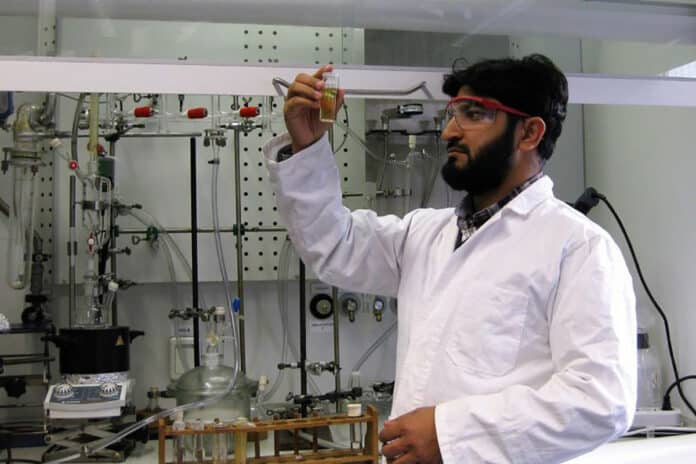Fresh water is becoming an increasingly scarce commodity due to various factors such as population growth, industrialization, climate change, and increasing water contamination. This growing freshwater scarcity leads to a rise in the use of membrane desalination of seawater as a relatively sustainable technology.
The membrane desalination, which is considered to be the most energy-efficient desalination technology currently available, promises to provide a long-term solution for the increasingly water-stressed world.
However, the currently used membranes for this process are susceptible to fouling, the accumulation of scale that results in decreased membrane performance, shorter lifespan, and the need for chemical cleaning, which may have negative environmental impacts. These significant challenges have, until now, limited desalination technologies.
To address these problems, NYU Abu Dhabi (NYUAD) researchers have developed a new kind of self-cleaning, hybrid membrane that can improve the efficiency of desalination technologies.
To create this unique hybrid membrane, researchers utilized stimuli-responsive materials, specifically thermosalient organic crystals, which are embedded in polymers. The so-called thermosalient (TS) crystals are a recently established class of dynamic crystalline materials that can suddenly expand or move when heated or cooled.
By combining microcrystals with traditional, porous membranes, a team of researchers developed a “smart” membrane that can self-modulate its pore size and surface properties in response to changes in temperature.
The crystals on the surface respond to a short-term increase in temperature, activating the membrane to effectively remove the deposited contaminants from its surface. The researchers discovered that this “gating” process significantly increased the flow of desalinated water by over 43% through osmotic distillation while also extending the membrane’s operational lifetime.
The potential of hybrid membranes to eliminate fouling and self-clean could revolutionize desalination technologies. By enhancing efficiency and expanding freshwater availability, they can address the global water scarcity challenge.
“There is an urgent need for energy-efficient membranes capable of water desalination and other separation technologies that eliminate fouling issues without utilizing harsh chemicals as cleaners,” Professor Panče Naumov said in a statement.
“The hybrid membrane we have developed demonstrates favorable consistency in performance after several cycles of descaling. With more than twenty types of dynamic organic crystals available to use with different membrane compositions, our novel approach represents an important step forward toward the development of a new generation of “smart” membranes that will be capable of self-cleaning in an energy-saving and environmentally benign manner, which will effectively improve the cost-effectiveness of the overall process of potable water production.”
Journal reference:
- Elvira Pantuso, Ejaz Ahmed, Enrica Fontananova, Adele Brunetti, Ibrahim Tahir, Durga Prasad Karothu, Nisreen Amer Alnaji, Ghada Dushaq, Mahmoud Rasras, Panče Naumov, and Gianluca Di Profio. Smart dynamic hybrid membranes with self-cleaning capability. Nature Communications, 2023; DOI: 10.1038/s41467-023-41446-9
